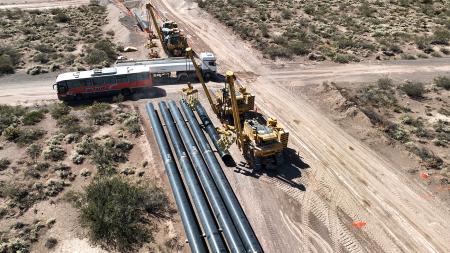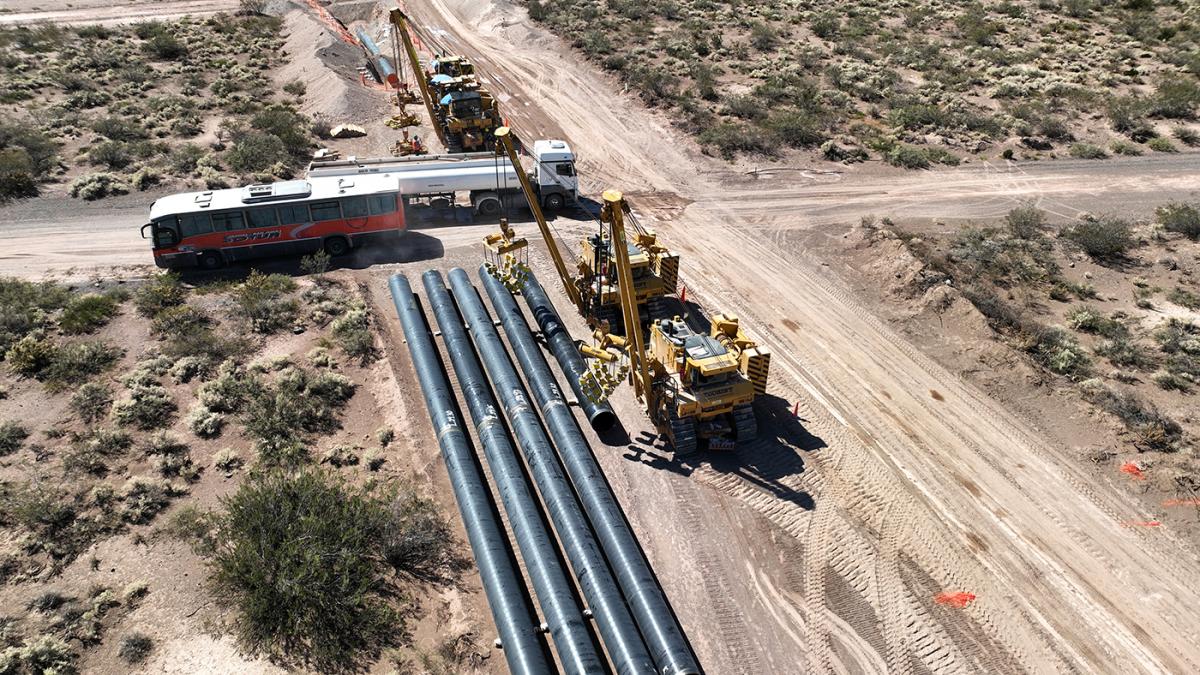 They rush the reversal of a trunk gas pipeline to supply gas from Vaca Muerta to the north of the country. Photo: File
They rush the reversal of a trunk gas pipeline to supply gas from Vaca Muerta to the north of the country. Photo: File
The national government decided to accelerate the reversal works of the Northern Gas Pipeline, which will guarantee supply to the entire north of Argentina and export to Chile by replacing the import from Bolivia with gas from Vaca Muerta.
The work -contemplated in the Transport.Ar Gas Pipeline System Program- became a priority due to the strong reduction registered in exports from Bolivia to Argentina in the last two yearsdue to the decline of its deposits, which makes it difficult to ensure the supply of the northern part of the country.
The Secretary of Energy, Flavia Royon, has already announced that shortly the Government plans to formally launch the works that will allow the flow of gas from Vaca Muerta to the central and northern provinces. through the system operated by the company Transportadora Gas del Norte (TGN).
The measure is given by virtue of the progress of the works of the President Néstor Kirchner Gas Pipelinedue to the fact that they are marching within the foreseen times and the first stage will be completed by the middle of next June, which will allow increasing the availability of gas in the system.
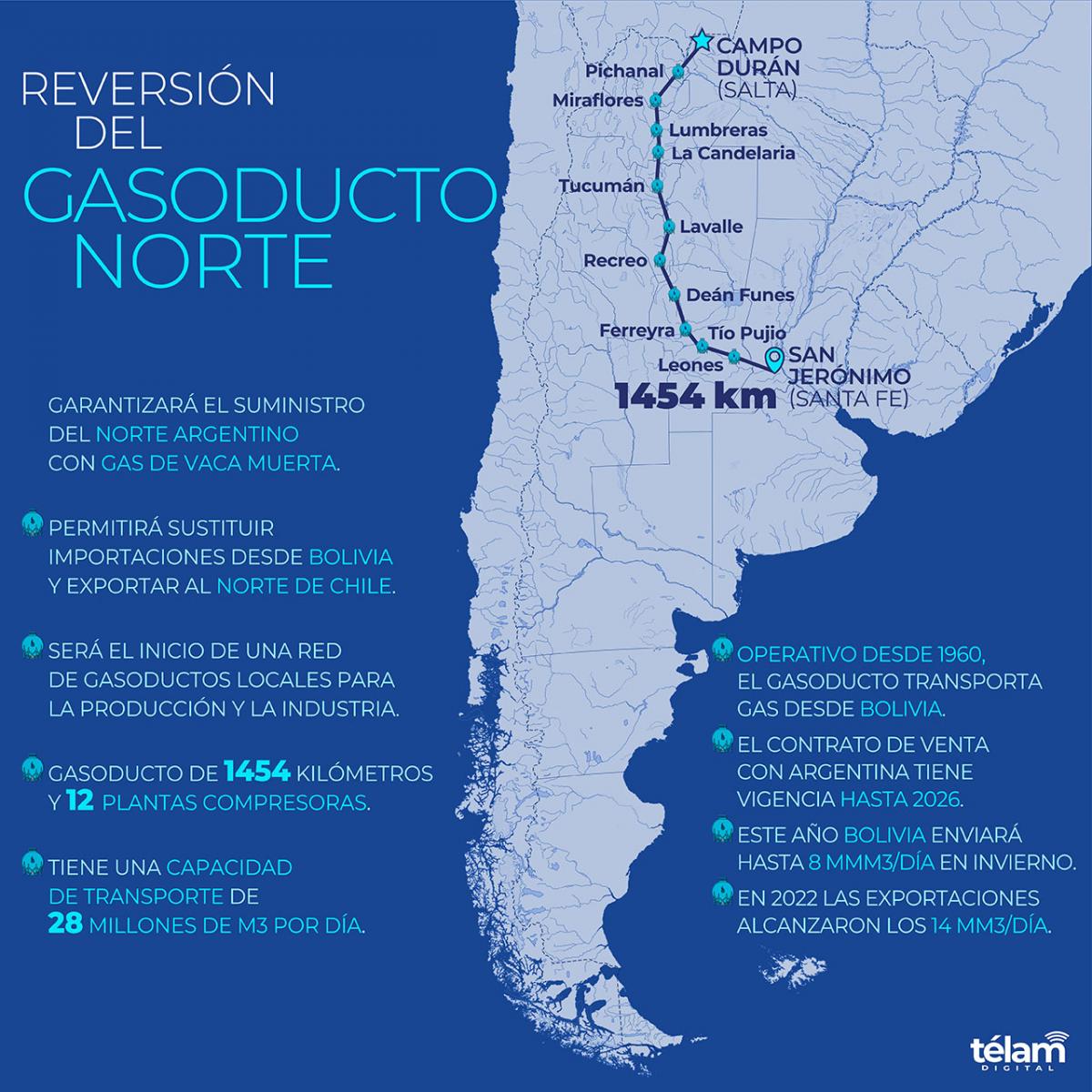 Infographics about the construction of the gas pipeline.
Infographics about the construction of the gas pipeline.
The national government had already reached an agreement with the Development Bank of Latin America-CAF at the end of Januarywhose approval is discounted as something imminent, for an amount of US$ 540 million for the construction of the gas pipeline that will link the towns of La Carlota with Tío Pujiothe reversal of the North and the compression plants.
about the work
The northern trunk gas pipeline -which has been operating since 1960- It is 1,454 kilometers long with a north-south orientation for transportation from Campo Durán (Jump) to San Jerónimo (Santa Fe).
Through the pressure provided by its 12 compression plants, achieves a capacity of 28 million cubic meters per day (MMm3/day).
Throughout your journey, The gas pipeline supplies eight provinces: Salta, Jujuy, Tucumán, Santiago del Estero, Catamarca, Córdoba, Santa Fe and Buenos Aires.
Together with the Gasoducto Centro Oeste, it forms part of the TGN Gas Pipeline Network.
The work as a whole will guarantee the supply of gas generated in Vaca Muerta to residential and industrial users in northern Argentinawhich will also make it possible to replace imports from Bolivia and export to northern Chile through the existing NorAndino Gas Pipeline near the province of Jujuy.
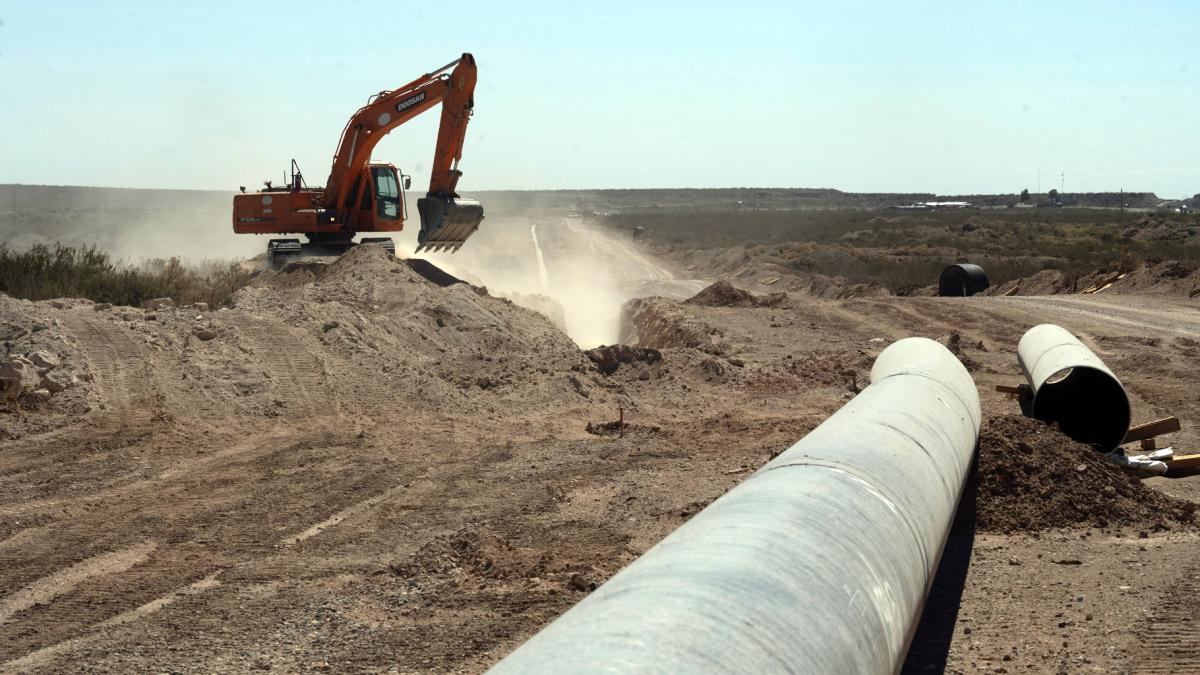 The work became a priority due to the strong reduction registered in exports from Bolivia to Argentina. Photo: File
The work became a priority due to the strong reduction registered in exports from Bolivia to Argentina. Photo: File
The NorAndino Pipeline was built in 1997 for the sale of gas to the neighboring country, but after the interruption of exports it was only used again by the Government of Mauricio Macri to import natural gas from the liquefaction plant installed in the Chilean city of mussels.
Another of the options that open up for the search for unconventional gas markets proposes that the reversal of the Northern Gas Pipeline will allow exports to Brazil through the Juana Azurduy Integration pipeline.
This 52-kilometre pipeline links the North Gas Pipeline with the Campo Grande deposit in Bolivia, and from there the existing infrastructure in the neighboring country could be used to transport the gas to Brazilsince the latter was also affected by the decline in Bolivian production.
The construction of a regional pipeline
The plan already includes the start of construction of a regional gas pipeline that will be linked to the Northern trunk to supply gas to mining projects in the provinces of Jujuy, Salta and Catamarca, particularly those oriented to lithium production.
This too It will ensure the supply of gas for the generation of thermal power plants in the region, which due to volumes and costs cannot operate with liquid fuels, which will ensure the region’s electricity supply.
The implementation of the reversion is contemplated based on replacing the gas supply from Bolivia, country with which Argentina has an import contract until 2026but which in its 18 years of validity has already received six addenda to adjust import volumes downward.
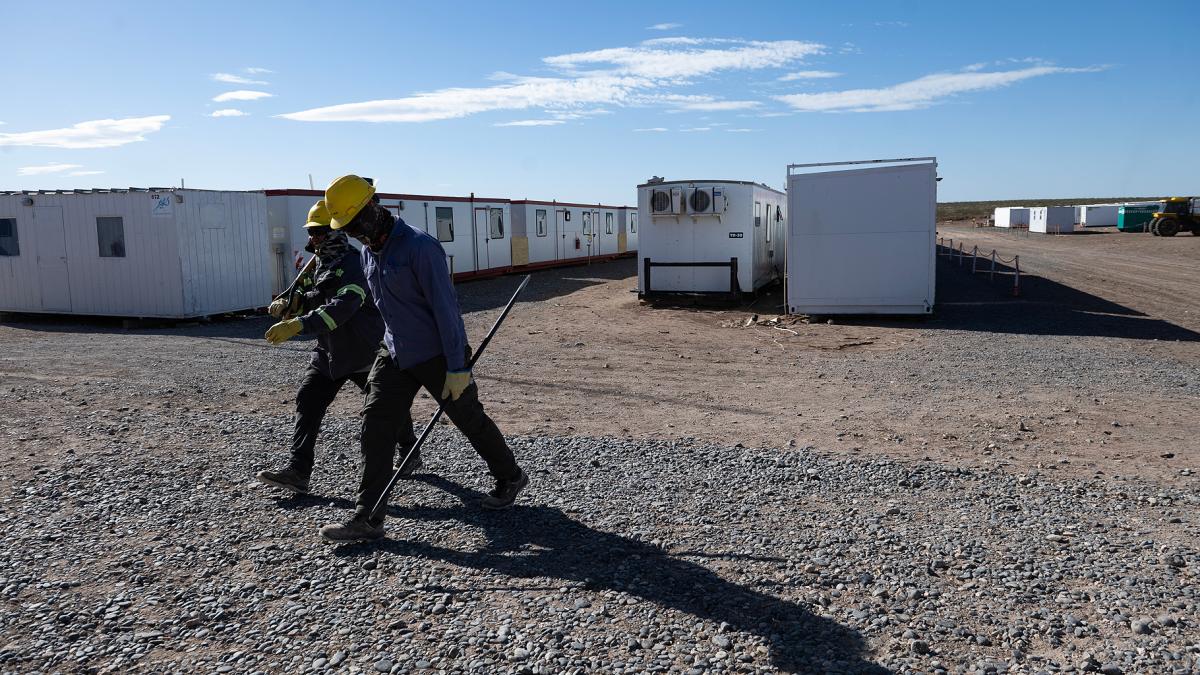 It will supply the north of the country. Photo: File
It will supply the north of the country. Photo: File
This year, the company Yacimientos Petrolíferos Fiscales Bolivianos (YPFB) was only able to commit shipments to the Argentine system for up to 8 MMm3/day for the winter months, after having exported up to 14 MMm3/d for the same 2022 season, far from the 27 MMm3/d originally committed in the October 2006 agreement.
The Transport.Ar Program also provides for the construction and execution works of the gas pipelines to be carried out in two stages through the state company Energía Argentinafor an initial amount estimated at US$249 million.
Anticipating the decision on carrying out the works, at the beginning of the current year the Ministry of Energy authorized the company TGN to start the necessary works on the North Gas Pipeline to increase the reversal capacity of its flow.
TGN presented the request for authorization to build, install, execute and finance with its own funds, or contracting financial debt, works on the North Gas Pipeline.
The government considered that The sector’s estimates foresee an increase in natural gas production for the coming months, given the success achieved in the round of public tenders for Plan Gas IV and V, which will make it possible to increase the supply to the system.


